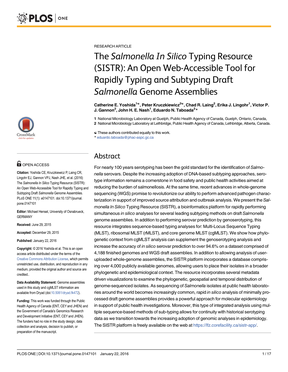Selecting the right research paper topic is a crucial step in the research process. A well-chosen topic can lay the foundation for a successful research project, while a poorly chosen one can lead to frustration and wasted effort. Choosing an interesting research topic can be challenging, especially for those new to the research field.
This article aims to provide guidance and inspiration for researchers seeking to choose and develop a compelling research topic and/or topics to write.
Understanding the Characteristics of a Good Research Topic
A good research topic should possess several key characteristics:
1. Originality and novelty: The topic should contribute new knowledge or insights to the field, rather than simply rehashing existing research. 2. Feasibility and relevance: The topic should be feasible to research within the given timeframe and resources, and relevant to the researcher’s field of study. 3. Significance and impact: The topic should have the potential to make a significant impact on the field and contribute to the advancement of knowledge.
Strategies for Generating Research Topic Ideas
Generating research topic ideas or thinking of topics to write a research on can be a daunting task, but there are several strategies that can help:

Brainstorming Techniques
1. Mind mapping: Create a visual representation of your ideas and how they connect to each other. 2. Freewriting: Write down your thoughts and ideas without censoring yourself, and then review what you’ve written to identify potential topics. 3. Questioning: Ask yourself questions about your field of study, such as “What are the current gaps in knowledge?” or “What are the most pressing issues facing the field?”.
Exploring Personal Interests and Experiences
Your personal interests and experiences can be a rich source of inspiration for research topics. Consider what you are passionate about and how it intersects with your field of study for your research paper ideas. Choose a topic that interests you.
Keeping Up with Current Trends and Developments
1. Reading academic journals and publications: Stay up-to-date with the latest research in your field by regularly reading academic journals and publications. 2. Attending conferences and seminars: Attend conferences and seminars to learn about current trends and developments in your field, and to network with other researchers.
Seeking Inspiration from AI for Research
AI for research can be a valuable tool for generating research topic ideas. AI algorithms can analyze vast amounts of data and identify patterns and trends that may not be immediately apparent to human researchers.
Narrowing Down and Refining Your Research Topic
Once you have generated some potential research topics, the next step is to narrow down and refine your topic:
1. Identifying a broad area of interest: Start by identifying a broad area of interest within your field of study. 2. Conducting preliminary research: Conduct preliminary research to gain a better understanding of the existing research in your area of interest. 3. Formulating a specific research question: Formulate a specific research question that addresses a gap in the existing research or explores a new angle on a familiar topic. This research question will serve as the basis for your thesis or thesis statement. 4. Considering the scope and feasibility of the topic: Consider the scope and feasibility of your topic, taking into account the timeframe and resources available to you. 5. Ensuring the topic aligns with the requirements of your research paper or scientific paper: Make sure your topic aligns with the requirements of your research paper or scientific paper, such as word count, formatting, and citation style.

Developing Your Research Topic
Once you have narrowed down and refined your research topic, the next step is to develop it further:
Conducting a Literature Review
1. Identifying key sources and references: Identify the key sources and references in your field of study that are relevant to your research topic. 2. Synthesizing and analyzing existing research: Synthesize and analyze the existing research to identify gaps in knowledge and potential areas for further exploration.
Formulating Hypotheses or Research Objectives
Formulate hypotheses or research objectives based on your analysis of the existing research and your own insights and observations.
Defining Key Concepts and Variables
Define the key concepts and variables that are central to your research topic, and operationalize them in a way that is measurable and testable.
Outlining the Research Methodology
Outline the research methodology you will use to investigate your research topic, including data collection methods, sampling strategies, and data analysis techniques.
Tips on How to Write Faster and Efficiently
Writing a research paper can be a time-consuming process, but there are several tips and strategies that can help you write faster and more efficiently:
1. Break your writing into manageable chunks and set achievable goals for each writing session. 2. Use outlines and mind maps to organize your thoughts and ideas before you start writing. 3. Minimize distractions by finding a quiet workspace and turning off notifications on your devices. 4. Take regular breaks to recharge and avoid burnout. 5. Utilize writing tools and software, such as Grammarly or Scrivener, to streamline your writing process and improve the quality of your work.
Research Topic Ideas and Examples
Here are some examples of research topics in various fields of study:
Social Sciences
1. The impact of social media on interpersonal relationships 2. The role of education in reducing income inequality
Natural Sciences
1. Exploring the potential of renewable energy sources 2. Investigating the effects of climate change on biodiversity
Humanities
1. Analyzing the influence of popular culture on literature 2. Examining the evolution of language in the digital age
Business and Economics
1. The impact of remote work on employee productivity and job satisfaction 2. Investigating the role of corporate social responsibility in consumer decision-making
Common Mistakes to Avoid When Choosing a Research Topic
When choosing a research topic, there are several common mistakes to avoid:
1. Choosing a topic that is too broad or too narrow: A topic that is too broad may lack focus and depth, while a topic that is too narrow may limit the potential impact and significance of the research. 2. Failing to consider the relevance and significance of the topic: A topic that is not relevant or significant to the field may not be worth researching, even if it is personally interesting to the researcher. 3. Neglecting to conduct sufficient preliminary research: Failing to conduct sufficient preliminary research can lead to a lack of understanding of the existing research in the field, and may result in a topic that has already been thoroughly explored by other researchers. This can lead to wasted time and effort, as well as a lack of originality in the research. 4. Ignoring the importance of a well-crafted research paper title: A well-crafted research paper title can help to attract readers and convey the significance of the research. Ignoring the importance of the title can lead to a lack of engagement with the research. A strong title should be concise, informative, and engaging, accurately reflecting the content and purpose of the research.

Conclusion
Choosing and developing a research topic is a crucial step in the research process, and one that requires careful consideration and planning. By understanding the characteristics of a good research topic, employing strategies for generating ideas, narrowing down and refining your topic, and developing it further through a literature review and research methodology, you can set yourself up for success in your research endeavors.
While the process of topic selection can be challenging, it is also an opportunity to explore your passions and interests, and to contribute new knowledge and insights to your field of study. By investing time and effort in selecting a compelling and feasible research topic, you can lay the foundation for a good research paper and a successful and impactful research project.









